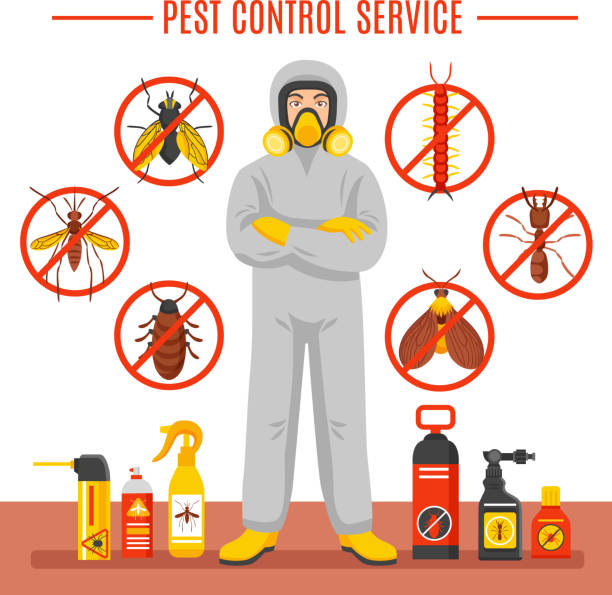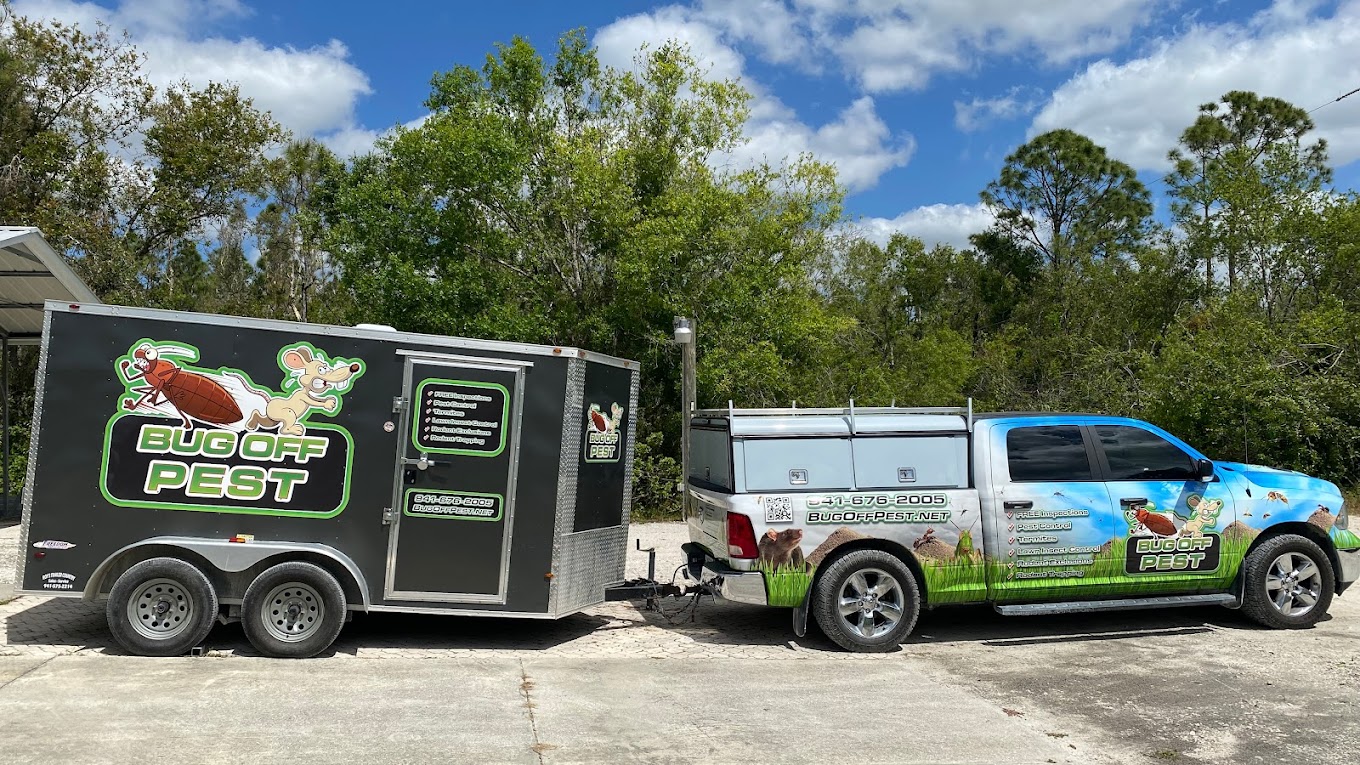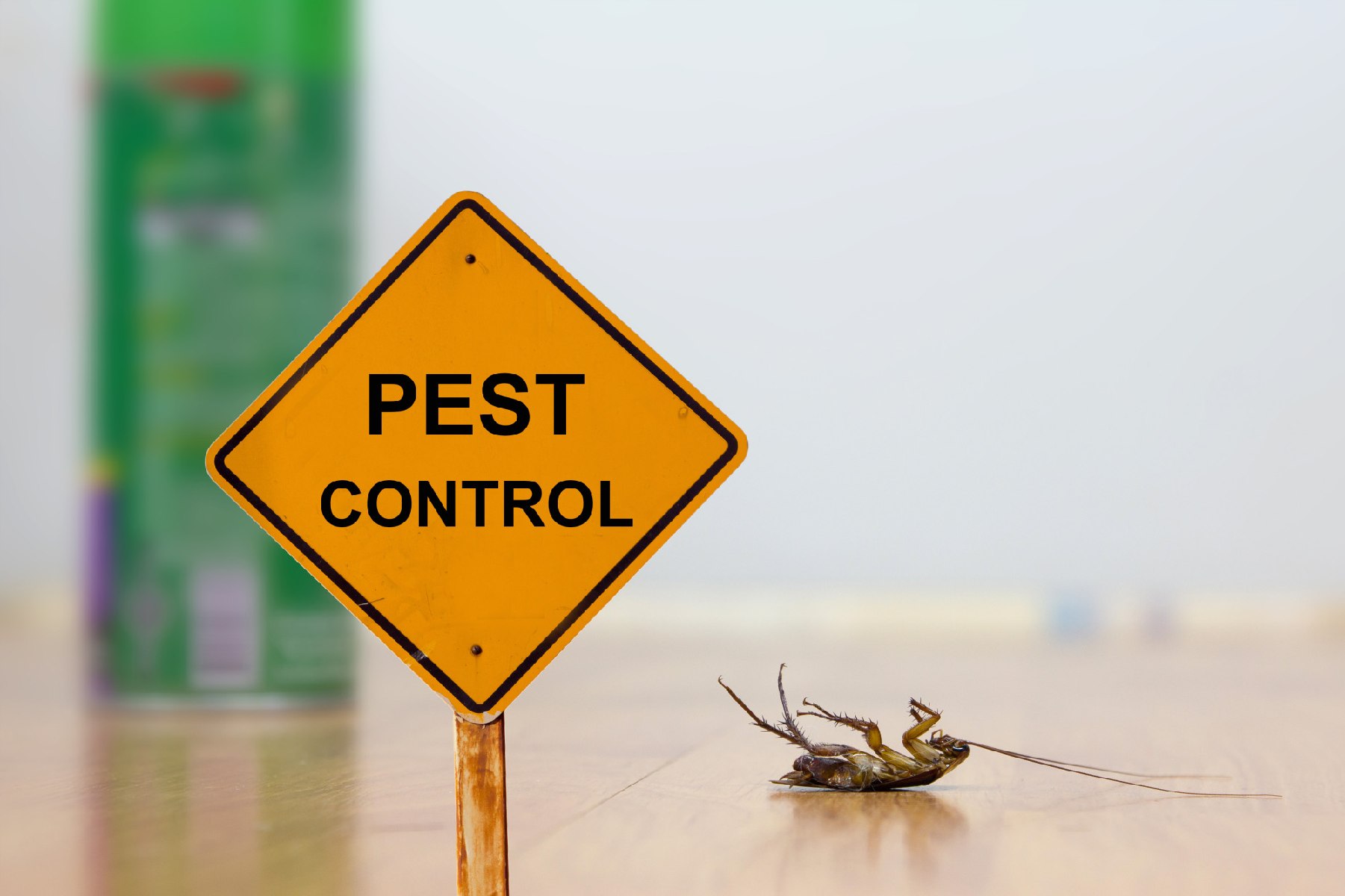Discovering Cutting-edge Strategies and Products for Efficient Bug Control
The landscape of insect control is developing, marked by the emergence of ingenious strategies and products developed to boost efficiency and sustainability. From wise catches equipped with sophisticated surveillance systems to biological methods that utilize all-natural predators, these improvements present a paradigm shift in exactly how we approach pest monitoring. Eco-friendly chemical choices and scent disruption approaches use targeted options that line up with environmental stewardship. As the sector faces these growths, a closer examination reveals not just their effects yet likewise the prospective obstacles that might emerge in their execution.
Smart Traps and Keeping Track Of Systems
How can modern-day innovation enhance pest administration? One significant advancement is the growth of clever traps and monitoring systems, which give real-time information and analytics for effective parasite control. These systems use sensors and cordless innovation to discover pest task, notifying home managers and bug control professionals to problems before they escalate.
Smart traps are geared up with attributes such as lure terminals that attract pests and catch them effectively. These traps can be kept an eye on from another location, permitting prompt treatments and lessening the need for substantial chemical applications. Furthermore, the assimilation of device understanding algorithms allows these systems to differentiate between target parasites and non-target species, boosting the precision of insect control actions.
In addition, the information accumulated from clever catches can be assessed to recognize patterns in pest habits and environmental aspects adding to infestations (Pest Control in Port Charlotte). This information is important for establishing targeted insect management techniques tailored to certain settings. By accepting wise traps and keeping an eye on systems, bug control experts can enhance their operational performance and decrease the eco-friendly influence of bug administration, ultimately leading to more secure and a lot more sustainable practices in the sector
Biological Pest Control Approaches
Using natural killers and bloodsuckers, biological parasite control techniques provide an environmentally friendly alternative to chemical therapies. This approach includes the introduction or improvement of details microorganisms that can naturally regulate bug populations, therefore minimizing reliance on artificial pesticides. Usual examples consist of using ladybugs to regulate aphid invasions and parasitical wasps to target caterpillars.

Organic control can be categorized right into three major methods: classic, augmentative, and conservation. Classic biological control includes importing natural opponents from the pest's indigenous habitat, while augmentative control includes increasing the population of existing all-natural opponents via releases. Preservation strategies concentrate on creating conditions that sustain these useful microorganisms in the environment.
The effectiveness of organic pest control depends upon recognizing the complex communications within communities. It commonly requires an extensive analysis of insect characteristics and the life process of both the pests and their all-natural adversaries. While biological techniques may not supply prompt results like chemical alternatives, they contribute to lasting bug administration and ecological community health. As understanding of ecological concerns grows, biological bug control approaches are increasingly acknowledged official statement for their lasting duty in incorporated parasite management programs.
Eco-Friendly Chemical Alternatives
Environment-friendly chemical options supply a sensible remedy for parasite monitoring that lessens ecological effect while successfully managing insect populations. These alternatives are stemmed from natural resources and are meticulously developed to target certain insects without harming useful organisms, making them an important component of lasting bug control methods.
Among one of the most efficient environment-friendly choices are plant-based insecticides, such as neem oil and pyrethrin, which are originated from the seeds and blossoms of various plants. These substances interfere with the life cycles of pests, reducing their populaces without the hazardous impacts connected with conventional chemicals - Pest Control in Port Charlotte. Furthermore, vital oils like peppermint and clove oil show repellent residential or commercial properties, further boosting their utility in parasite monitoring

Furthermore, eco-friendly chemical options often break down quicker in the atmosphere, lowering the danger of dirt and water contamination. This particular aligns with the increasing consumer demand for lasting practices in agriculture and metropolitan parasite control. As research remains to development, the growth of innovative environment-friendly solutions will certainly further enhance efficiency and expand application locations, enabling pest management specialists to embrace greener, much more accountable techniques in their methods while protecting human health and wellness and the environment.
Scent Disruption Methods
An additional innovative method in sustainable insect administration is using pheromone interruption methods. These approaches exploit the natural chemical signals, or pheromones, that insects utilize for communication, particularly in mating behaviors. By disrupting these signals, pest populaces can be effectively taken care of without considering harmful chemicals.
Scent catches are generally used in this method. These traps use artificial variations of insect pheromones to entice male insects, therefore lowering her comment is here their capability to find females and replicate. With time, this can bring about a considerable decline in pest populaces. Furthermore, the release of repellent scents can produce confusion amongst insects, better preventing their mating procedures - Pest Control in Port Charlotte.

Integrated Insect Monitoring Techniques
Reliable insect control often needs a comprehensive technique, and Integrated Parasite Administration (IPM) methods provide a framework for attaining this goal. IPM integrates different management methods to lessen parasite populations while minimizing dependence on chemical pesticides. This complex method starts with comprehensive tracking and recognition of parasites, enabling targeted interventions based on certain parasite stress.
Cultural practices, such as crop rotation and cleanliness, play a crucial duty in avoiding insect facility. Organic controls, consisting of all-natural killers and parasitoids, are utilized to preserve bug populaces at workable levels. When required, careful chemical treatments are applied, highlighting reduced poisoning to non-target Learn More Here types and the atmosphere.
By employing this holistic approach, IPM not just enhances parasite control performance yet likewise contributes to lasting environmental balance. Eventually, Integrated Pest Monitoring represents a forward-thinking remedy that aligns farming productivity with ecological stewardship, making it vital in contemporary bug control strategies.

Conclusion
To conclude, the combination of cutting-edge methods and items for efficient parasite control represents a substantial improvement in lasting insect monitoring. Smart traps and checking systems, biological bug control methods, environment-friendly chemical alternatives, and pheromone disturbance techniques collectively boost the effectiveness of bug management techniques. By taking on these approaches, the reliance on standard pesticides can be decreased, advertising ecological health while guaranteeing reliable pest control. Continued r & d in these areas will additionally boost insect administration techniques.